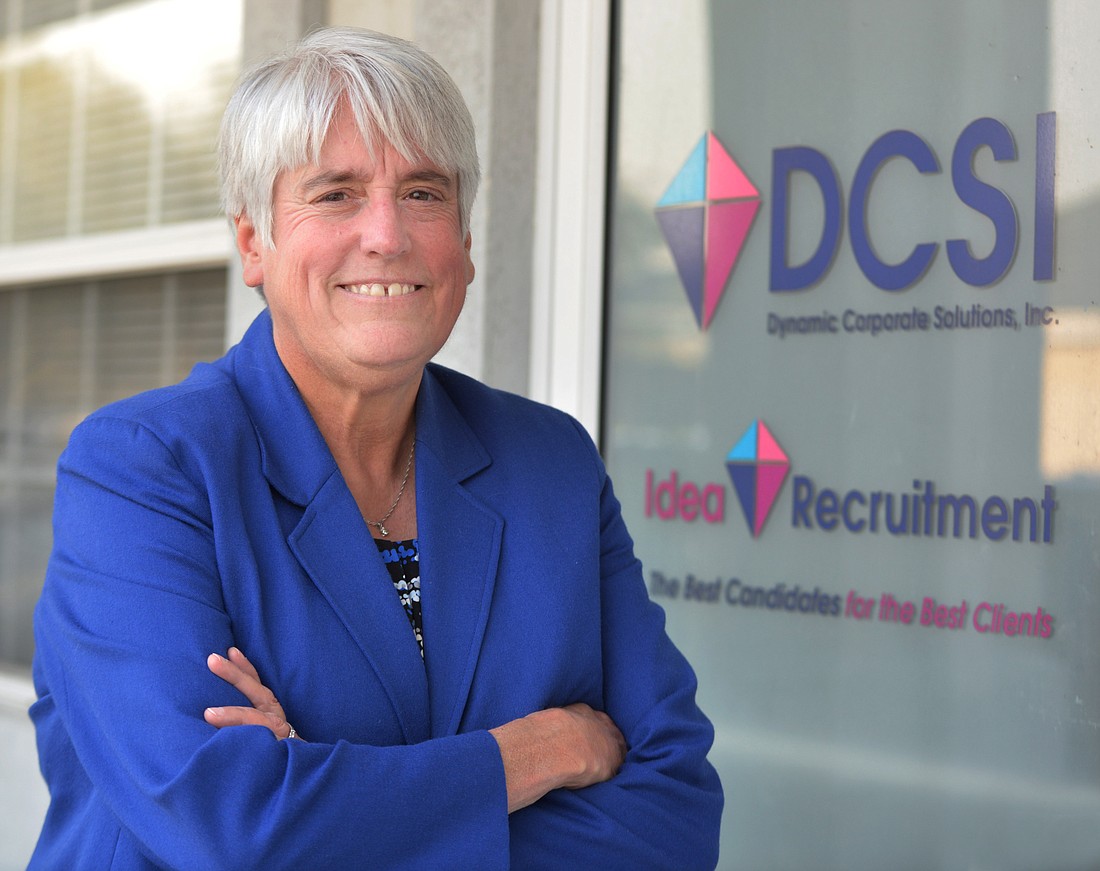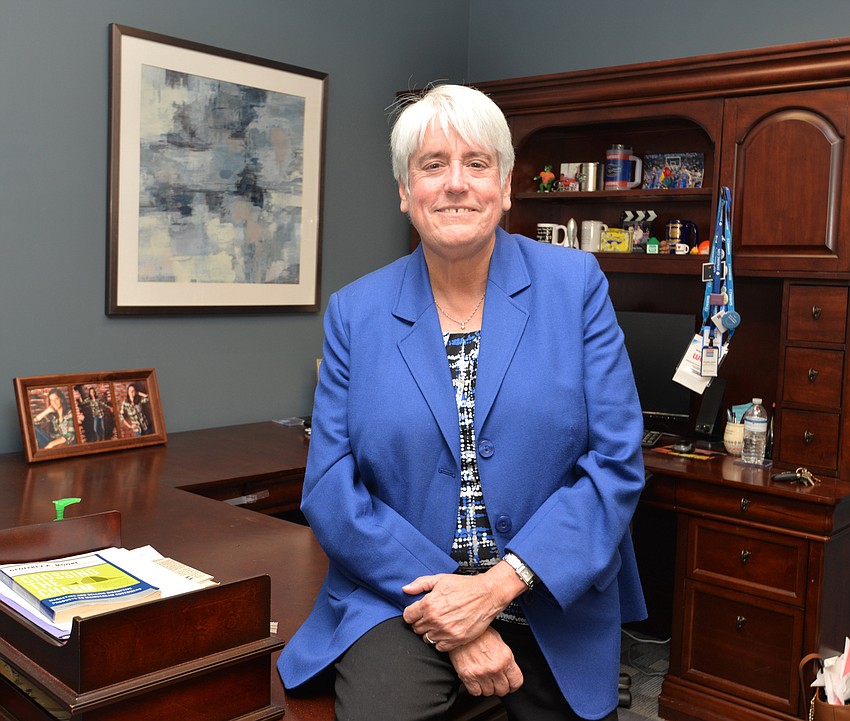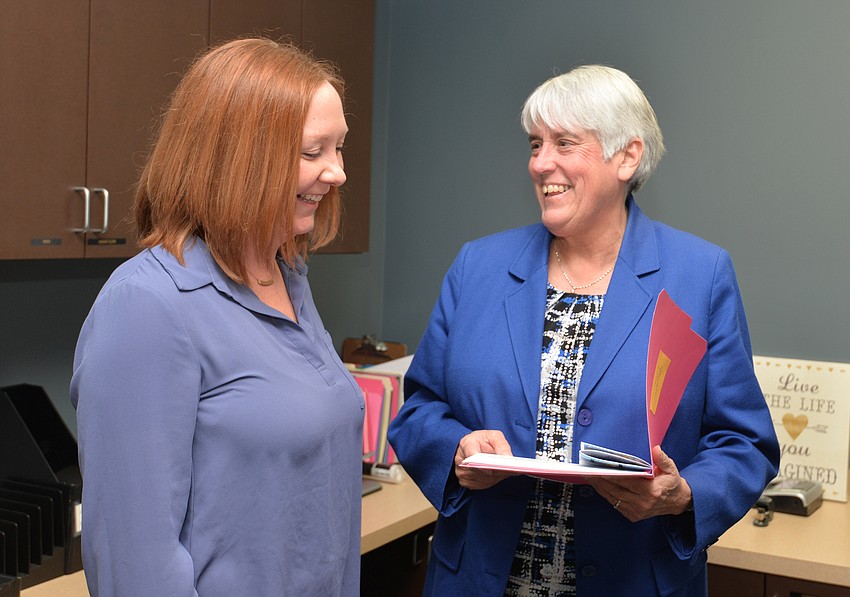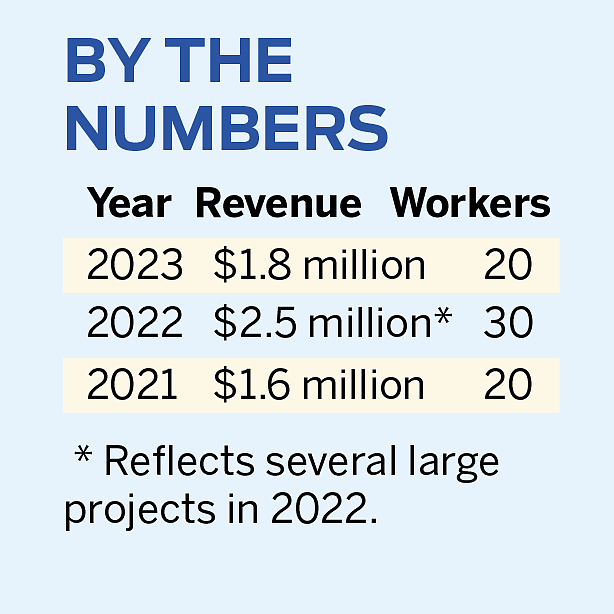
Employees may think of their human resources department only when they start or leave a job.
There is more to the department, however, than payroll, insurance and benefits.
Dynamic Corporate Solutions Inc. not only handles traditional HR tasks, it is involved in developing leadership strategies and providing small companies with kits that include all the forms needed to operate properly.
Suzanne “Suzi” Lemen, 64, has been leading human resources departments since she was 22 and a graduate of The University of Kansas with bachelor’s degrees in personnel and psychology.
After graduating in 1982, she moved to Clay County to live with her family. While serving an internship at the former Florida National Bank, she received a job offer for an HR position at the former Barnett Bank.
Florida National Bank “gave me a calculator and they stuck me in some closet or something as an intern. And then the funny thing is, I got the offer from Barnett and they go ‘Oh, Barnett’s a really great bank, you should take that.’ And it was their competitor,” Lemen said.
By the time Barnett phased out her department 10 years later, she was handling HR duties for five Barnett Bank divisions.

At a bank-offered seminar on finding another job, Denise Shinn, a friend and former co-worker, suggested they start their own independent human resources business. That was in 1993.
“She basically talked me into it. We started on the dining room table and went from there,” Lemen said.
They built the business by hiring themselves out to handle HR duties and special projects for companies starting with AccuStaff. Several mortgage companies where Lemen already knew people from her days at Barnett followed.
The partners first worked out of Lemen’s home. As they grew the business, they allowed employees to work from home as well, before remote working was a trend.
In 2007, Lemen acquired Shinn’s part of the business that they started 14 years earlier.
“I bought her out after she was the one who talked me into doing it. That’s kind of funny. Thirty-one years later and I’m still here,” she said.
Lemen has an office in Fleming Island in Clay County but says she is rarely there except for staff meetings or preparing for seminars.
Dynamic Corporate Solutions now has 20 employees.
Most times, Lemen and her staff provide training at a client’s workplace.

Having instituted remote working years before, the company was prepared to help other companies convert.
Lemen said they were an early adopter of Zoom video-meeting software during the pandemic.
While many businesses struggled during the pandemic, she said hers thrived.
Companies needed help not only to downsize but to determine who to lay off as well. When the economy improved, they needed help in hiring.
“So that was one of the reasons our revenues were so large in 2022. It was because coming out of COVID people had to make a lot of adjustments,” Lemen said.
One company wanted to rewrite job descriptions for 700 positions. Their in-house HR staff couldn’t turn out that sort of production promptly, she said.
Human resources divisions are constantly adapting to changes. Lemen said the two biggest developments involve artificial intelligence and wages.
“Everything is changing so fast. A year and a half ago, we weren’t really even talking about AI in the workplace. That wasn’t on the radar,” she said.
AI will change the workplace.
”Us baby boomers, we’re workaholics,” she said.
Lemen said younger workers think differently.
“They want to have balance in their life and they’re smarter than we are. Let’s face it, they know how to do work differently. Let’s say if it used to take two hours to do something, but now I can use ChatGPT or Bing or some other AI and it only takes me 15 minutes. Why should the employer care as long as you’re getting it done?”
Dynamic Corporate Solutions performs wage surveys within a client’s company.
With inflation and low unemployment numbers, job seekers can negotiate salaries more than in the past. As companies hire, new employees may be paid better than established employees doing similar jobs. This can breed resentment, she said.

“We’ll go in there and look at the whole staff. How much the job should pay based on what the market is saying that these jobs are worth. And then we’ll analyze the current staff and make recommendations – like you need to make pay adjustments,” she said.
Wage disparity could eventually ruin a company, she said.
“It’s costly, but it’s either do that or you don’t have a business because you don’t have anybody to do the work,” she said.